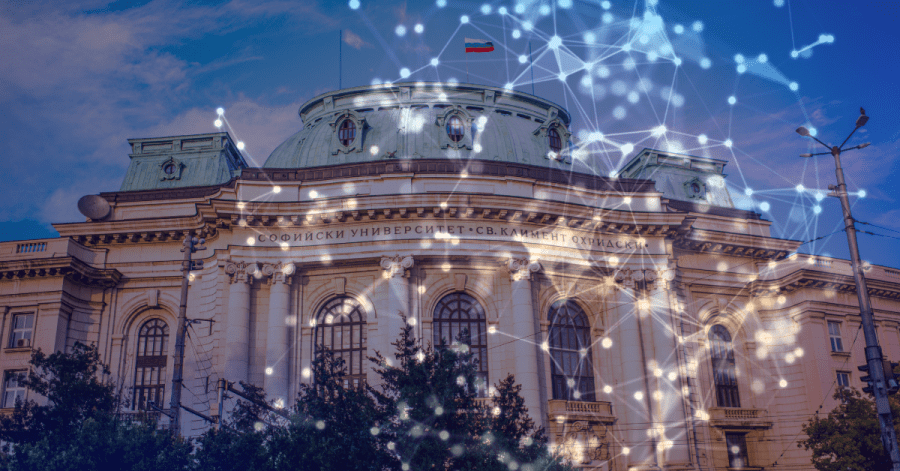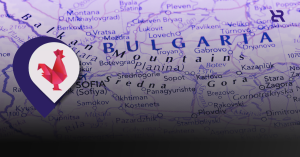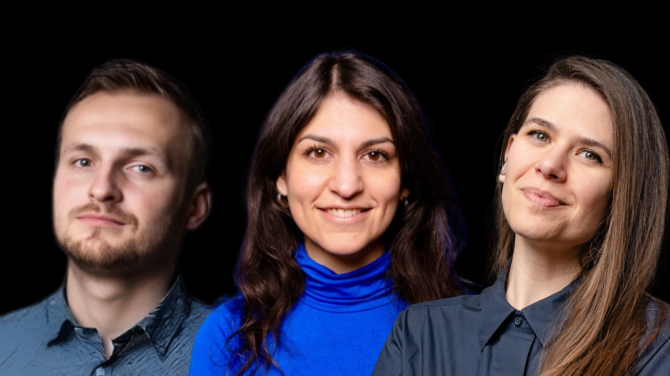Today, the first AI institute in SEE opens doors in Sofia to grow the Bulgarian scientific community, attract, develop, and retain local and international research talent, as well as accelerate the economic and social innovation impact in the region. The Institute for Computer Science, Artificial Intelligence and Technology (INSAIT) is created in partnership with ETH Zurich and EPFL Lausanne, two of the world’s leading technology universities, and is structured as a special unit of the Sofia University “St. Kliment Ohridski”.
Backed with $100M from the Bulgarian government, $6.5M from SiteGround, $3.75M from Amazon Web Services (AWS), $3M from Google, $550K from Bulgarian entrepreneurs, and $285K from DeepMind, INSAIT’s mission is to be the catalyst for the transformation of the local economy into a competitive high-tech one. The Institute aims to bring the state of AI and computing in the region to a new level through open research, world-class research facilities, and globally competitive compensation.
Reverse the brain drain trend
Prof. Martin Vechev, Professor at the Swiss ETH Zurich University, is the architect of INSAIT. Vechev is also co-founder of the deep tech startup LatticeFlow, and a recipient of a €2M grant from the European Research Council ERC Consolidator for the financing of his project on secure, fair, and resilient AI technologies.
“Eastern Europe is full of bright scientific minds – but too often, people’s aspirations are limited due to lack of facilities, funding, and support. This has resulted in a ‘brain drain’ away from Eastern Europe, a systemic problem that is discouraging innovation. INSAIT is perfectly placed to reverse this trend and compete on a worldwide scale. AWS, Google, and DeepMind understand the importance of bridging science and technological divides between East and West to promote inclusive economic growth and recovery, democratize science and attract top talent focused on solving some of AI’s hardest challenges. We also have their support in promoting diversity and inclusion in science, by encouraging applications from women and other underrepresented groups in technology and science,” Vechev highlights.
The partnership between ETH Zurich, EPFL, and Sofia University was ratified by the Bulgarian parliament in September 2021 with a unanimous vote and support from all political parties. The 10-year initial endowment of almost $100M from the local government is the first time that scientific research in computer science has received public funding and support in Eastern Europe.
World-class AI research and training programs
INSAIT will be supervised and advised by world-renowned scientists from ETH Zurich, EPFL, Massachusetts Institute of Technology, University of California, Berkeley, Cornell Tech, Princeton University, Yale University, Technion – Israel Institute of Technology, and others. The AI Institute will offer research and educational programs for machine learning, natural language processing, computer vision, information security, programming languages, formal methods, quantum computing, computer architecture, and more.
Оver the next five years, the financial backing of AWS will support the research of INSAIT on Automated Reasoning, the algorithmic search for proof in mathematical logic. Google’s $3M investment will provide INSAIT with cloud computing resources and access to its Tensor Processing Unit Research Cloud infrastructure for running machine learning models. Moreover, the $285K support of DeepMind will be used to fund two PhD scholarships for women, which is an impactful investment given that Bulgaria is among the countries with the highest percentage of women in information technology, from academic to industrial positions.
The Institute will start working in September 2022, and within two years, it is expected that faculty and students will start publishing papers in top conferences to help build the international reputation of INSAIT. In the next ten years, it is envisioned that INSAIT will be ranked as one of the world’s leading academic institutions for AI research.
Attracting and retaining academic and engineering talent
For a long time, the SEE region has been notorious for its negative demographics and brain drain social tendencies with highly qualified people choosing to build a career in the Western counties. On average, every year around 30,000 Bulgarians leave the country in search of better prospects. Being the first research hub in the region, INSAIT will attract researchers from abroad and encourage top Bulgarian talent to stay in the country.
The Bulgarian Minister of Innovation and Growth, Daniel Lorer, has shared for The Recursive that the government has developed a strategy to affiliate Bulgarian academic institutions with top institutions in their domain around the world.
“The best example is INSAIT. We are taking the same approach with the Agricultural University in Plovdiv, developing affiliate degrees with Wageningen University, which is probably the best agricultural university in Europe. We are applying the same logic to the Economic University in Varna which plans to open a Tourism University and affiliate it with one of the top hospitality institutions in Europe. And this concept will keep coming; so, you will hear more of it. A few years down the line, we should be able to have trained talent serving companies based here rather than somewhere else,” Lorer shares in an interview for The Recursive.
Byron Cook, Vice President and Distinguished Scientist at Amazon Web Services (AWS) highlights that with the launch of INSAIT in Sofia, AWS looks forward to equipping the future workforce with advanced automated reasoning skills and research, and help foster a culture of innovation and entrepreneurship that will benefit society as a whole.
In a similar vein, Jeff Dean, Senior Fellow at Google, shared that Eastern Europe has an incredible talent pool of computer scientists and engineers, and Google aims to help INSAIT become a world-class facility, attracting top researchers from within the region and further afield.
“Science builds cultural bridges – something the world needs now more than ever. I am delighted that ETH Zurich, through our professors’ partnerships with the INSAIT, can contribute to strengthening scientific ties with Bulgaria and Europe,” Joel Mesot, President of ETH Zurich, concludes.







